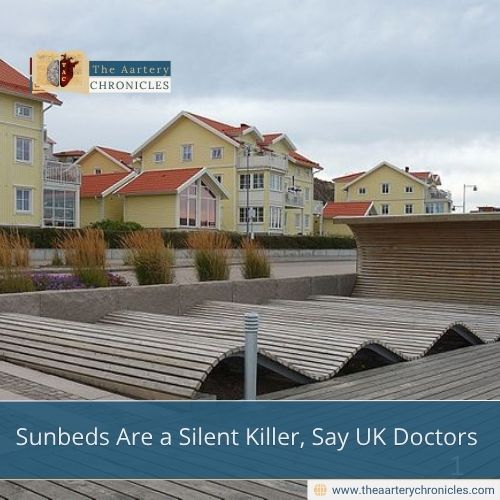

Sunbeds Are a Silent Killer, Say UK Doctors
Health experts are now calling for a ban on commercial sunbeds in the UK, warning that their use is directly linked to higher rates of melanoma and other skin cancers, especially among younger people. Despite existing restrictions, doctors say the current laws are failing to protect the most vulnerable groups. Instead, they are urging the government to take decisive action and completely outlaw indoor tanning businesses.
Why Experts Say Sunbeds Are a Serious Risk
Indoor tanning has become increasingly popular, particularly among Gen Z, with social media often portraying sunbeds as a “wellness” or beauty trend. Surveys show that about 28% of the UK public uses sunbeds, with the highest usage among those aged 18–25. Alarmingly, nearly half of this group said they used them weekly, often unaware of the dangers.
Although under-18s have been banned from using sunbeds in England and Wales since 2011, a survey by Melanoma Focus in 2025 revealed that 34% of 16–17-year-olds were still using them, raising concerns about poor enforcement and lack of oversight.
Evidence Linking Sunbeds and Melanoma
Medical experts highlight that the number and location of sunbed outlets are not tracked in the UK, making it difficult to control the industry. In 2024, there were an estimated 4,231 outlets in England and 232 in Wales, with the highest concentration in northern regions and deprived communities.
This uneven distribution mirrors melanoma trends: young people in northern England have some of the highest melanoma rates, with more than 2,600 new cases diagnosed annually in 25–49 year olds between 2018 and 2020. Two-thirds of these cases were in women, and tragically, 146 deaths were recorded each year.
Misleading Claims by the Tanning Industry
Industry marketing often suggests that modern sunbeds are safer or that a “base tan” offers skin protection. However, scientists stress that these claims are not supported by evidence. The radiation from sunbeds remains harmful, and their promotion to boost self-esteem or beauty actually increases health inequalities by targeting young and disadvantaged individuals.
According to experts, this is a clear case of an under-regulated industry aggressively promoting a dangerous product with little accountability.
Why a Ban Could Save Lives
Professor Paul Lorigan and colleagues, writing in The BMJ, argue that stricter regulations alone are unlikely to solve the problem. Instead, an outright ban on commercial sunbeds would deliver an immediate reduction in skin cancer risk, save NHS resources, and send a strong public health message.
They also emphasise that education remains vital, as encouraging sun-safe habits such as using sunscreen and avoiding indoor tanning is the most cost-effective long-term solution. However, changing behaviours takes time, and a ban would provide urgent protection while broader awareness campaigns take root.
Conclusion
The UK government has pledged to focus on prevention and reducing health inequalities. Experts believe that a ban on commercial sunbeds should be the first step in this strategy, protecting young people and disadvantaged communities from a preventable cancer risk. By removing easy access to sunbeds, the UK could take a decisive stand against melanoma and improve national skin health for generations to come.
Source: Inputs from various media Sources
I’m a pharmacist with a strong background in health sciences. I hold a BSc from Delhi University and a pharmacy degree from PDM University. I write articles and daily health news while interviewing doctors to bring you the latest insights. In my free time, you’ll find me at the gym or lost in a sci-fi novel.
- Priya Bairagi
- Health News and Updates,People Forum
- 3 October 2025
- 15:00








